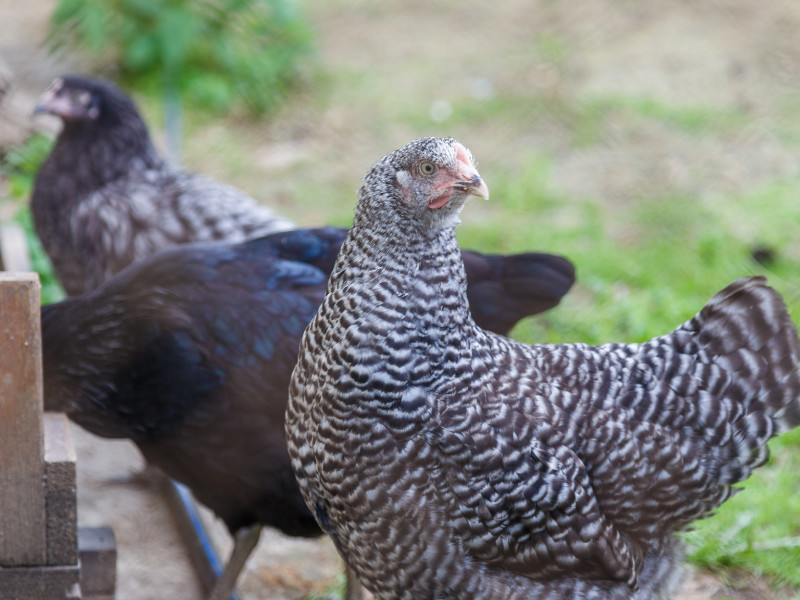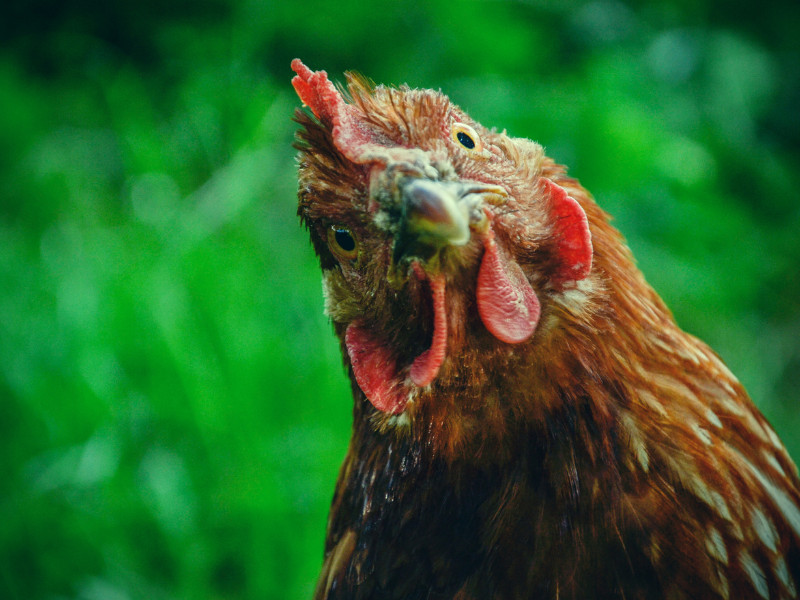Chicken worms and natural deworming tips. Did you know that chickens can get worms? Much like other animals, these birds can end up with worms that can cause different issues. When chickens have worms, they will often begin leaving unusual droppings behind. You might notice your chickens shaking or making loud gulping sounds.
A chicken with worms will usually stop producing eggs over time and may eventually pass away if the problem goes untreated. For this reason, you need to know more about worms and how to get rid of them. Different products are available to help treat these worms and ultimately remove them for good.
How Do Chickens End Up With Worms?
Chickens can quickly develop worms from something they consumed. There is a good possibility for a chicken to develop worms after swallowing droppings left behind by a different chicken on the same land. On the other hand, the chicken could end up eating an infected insect.
If none of your chickens initially had worms and you think some of them have them now, it is likely due to insects. It is not always obvious to tell that chickens have worms at first, but the signs become more noticeable as the situation gets worse.
What Types of Worms Can Chickens Get?
Chickens can contract numerous types of worms. It is important to know the differences between these worms.
Roundworms
Roundworms are one of the most common types of worms found in chickens. Although they are common, they can cause harm and should get treated. These worms live in the intestines and can cause blockages. They make it difficult for chickens to get much-needed nutrients from the foods they consume. If a blockage occurs for too long, the infestation of roundworms can cause death to occur.
Threadworms
Threadworms get their name from their appearance. They are long and thin, similar to a piece of thread. Unfortunately, these worms can survive in different parts of a chicken’s body, making them even more dangerous.
These parasites can lead to issues with the stool. What makes these worms even worse is that other animals can contract them from the chickens. If you have dogs, cats, or other animals on the property, they are at risk of getting threadworms around the chickens.
Tapeworms
When tapeworms infect a chicken, it is often easy to see them in the droppings left behind by these animals. They are small, flat, and white. The appearance of tapeworms will often get compared to a piece of short-grain white rice.
Not only can tapeworms infect a chicken on the inside, but they can also end up in a chicken’s eggs, making them unusable. Some of the symptoms of tapeworms in chickens include weight loss, paralysis, and weakness.
Cecal Worms
Much like the other parasites, cecal worms negatively impact the intestines. Chickens can get cecal worms from consuming earthworms. These worms tend to appear in areas that are overcrowded by chickens. Make sure you have plenty of space for your chickens to move around. If you have too many chickens in one spot, there is a greater chance for them to contract these specific types of worms.
How Do You Get Rid of Worms in Chickens?
If you want to get rid of worms in chickens, you will need to take several necessary steps. The first thing you should do is monitor any symptoms that your chickens are starting to display. Keep note of the signs and contact a veterinarian for professional advice. In the meantime, there are some natural deworming tips for you to consider trying.
The best method is to prevent them all together. A healthy chicken with a balanced diet is less likely to succumb to worms or parasites of any kind.
Apple Cider Vinegar
I like to add a bit of ACV to my chicken’s water as an immune booster and parasite preventer.
Super Vinegar – 30 Uses for Apple Cider Vinegar
Natural Chicken Deworming Tips
Several ingredients are known to work wonders for these birds if you are trying to take a natural approach to treat your chickens for worms. Consider trying one or more of the following options below.
Diatomaceous Earth
A food grade diatomaceous earth is a natural deworming that can be very helpful in preventing and ridding your chickens of worms. This can be mixed in with their feed. It is also wonderful to prevent lice and mites in chickens.
Mint
Mint works as a natural wormer. You can add it to the water that your chickens will drink or sprinkle it over their food. It is safe for the chickens to consume, and it is naturally good for them. You can buy mint leaves or begin growing it in your garden.
I like to add mint to my hens nests and laying boxes.
See: Your Guide to the Best Chicken Nesting Boxes
Dill
Another plant considered a natural dewormer is dill. There is reason to believe that it can help get rid of unwanted parasites from inside the intestines. You can use it on its own or in combination with other natural ingredients, including mint and garlic.
Garlic
In some areas around the world, farmers use garlic as a dewormer for their animals. You can mix it with chicken feed to get the birds to consume it. The garlic may help to clear up the worms from the intestinal tract, leaving your chickens in far better condition.
What Other Types of Treatments Work?
If you do not want to take a natural approach using plants as treatment, you have other options. There are topical ointments that work well on chickens. You would need to follow the instructions on the topical ointment, but most will advise you to leave several drops on the back of the neck.
The number of drops needed will depend on the size of the chickens you are treating. For example, if you have large chickens, they may require up to five drops on the back of the neck. If you have chicks with worms, they may only need a single drop of the topical ointment.
You can speak to a veterinarian to get prescription products for your chickens. However, if you want to avoid the expense associated with the veterinarian, you have the option of buying products online. You can find various poultry dewormers online and in pet stores that are effective.
What You Need to Know About Chicken Worms and Natural Deworming Tips
Unfortunately, chickens can get worms. These birds may display different signs when they have worms. The symptoms include a change in appetite, bloating, and a lack of egg production. If you have noticed that your chickens have worms, it is vital to identify the specific type and then provide the necessary treatment.
If you do not treat your chickens for this condition, they can die from it. Avoid dealing with such a severe problem by taking immediate action when dealing with these parasites.






